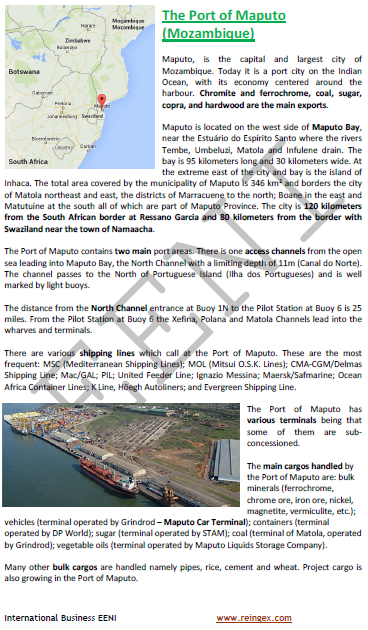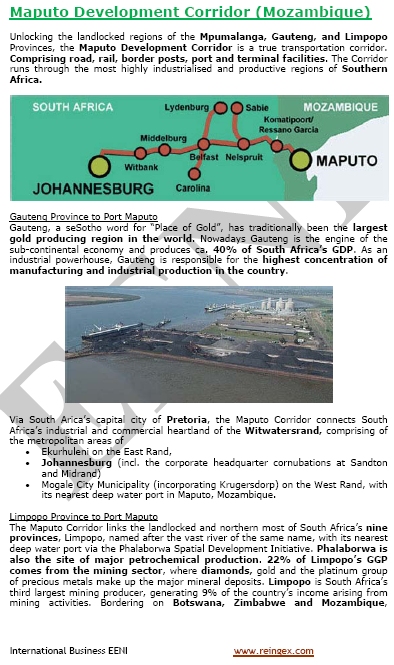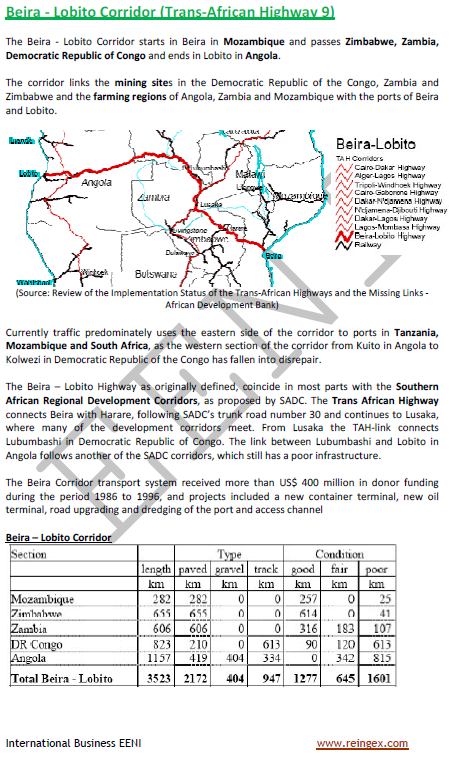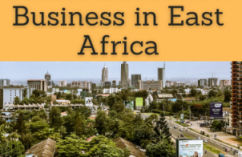Business in Mozambique, Aluminum, Port of Maputo
Mozambican Foreign Trade, Logistics. One of the most African dynamic economies. Titanium
Mozambique is one of the most African dynamic economies
- natural resources in Mozambique: hydroelectric, petroleum, coal, minerals (titanium, graphite, wood, aluminum), and fishing products
- Huge minerals resources reserves

Mozambique is one of the World's poorest countries.

Religions and Global Business -
Religious diversity
- Introduction to the Republic of Mozambique (East Africa)
- Mozambican Economy
- Industrial Free Zones
- International Trade of Mozambique
- Business and Investment Opportunities in Mozambique
- Agriculture
- Fisheries and Aquaculture
- Tourism and Hotels
- Infrastructure
- Energy
- Legislation on Investment
- CPI - Investment Agency of Mozambique
- Access to the Mozambican Market
- Transport and Logistics
- Business Plan for Mozambique
Sample:

The educational aims of the Subject “Foreign Trade, Logistics and Business in Mozambique” are:
- To analyze the Mozambican Economy, Logistics and Global Trade
- To conduct research on business opportunities in Mozambique
- To explore the Mozambican trade relations with the student's country
- To learn about Mozambican Trade Agreements
- To examine the Mozambican logistics sector
- To develop a business plan for the Mozambican Market

The Subject “Foreign Trade, Logistics and Business in Mozambique” is included within the curriculum of the following academic programs at EENI Global Business School:
Doctorate in African Business.

Master in Business in Africa, Transport and Logistics in Africa.

Languages:  or
or  Moçambique
Moçambique  Mozambique
Mozambique  Mozambique.
Mozambique.
- Subject Credits “Doing Business in Mozambique”: 2

International Trade, Logistics and Business in Mozambique

- Ports of Beira, Nacala, and Maputo
- Maputo Development Corridor
- Nacala Road Corridor Project
- Beira-Lobito Corridor
- North-South Logistics Corridor


Mozambican Preferential Access and Trade Agreements:
- Mozambique and the East African Economic Area
- Southern African Development Community (SADC)
- European Union-SADC Agreement
- COMESA-EAC-SADC Agreement
- Southern Africa Customs Union and Mozambique (SACUM)
- African Continental Free Trade Area
- Indian-Ocean Rim Association
- European Union-Mozambique
- GSP
- Africa-EU Partnership
- AGOA
- Trade Agreements with India and Malawi
- Islamic Trade Preferential System
- Arab Bank for Africa (BADEA)
- Global System of Trade Preferences
- Conference on the Great Lakes Region- Guest Member

- World Trade Organization (WTO)
- Agreement on Trade in Services (GATS)
- Agreement on the Application of Sanitary Measures
- Agreement on Technical Barriers to Trade
- Agreement on Preshipment Inspection
- Agreement on Safeguards
- Trade Facilitation Agreement
- World Customs Organization (WCO)
- Kyoto Convention

- Economic Commission for Africa
- African Union
- AU Convention on Combating Corruption
- AUDA-NEPAD
- African Development Bank
- Africa-Asia Partnership
- Africa-Korea Partnership
- Africa-Japan Cooperation
- Africa-India Cooperation
- Africa-BRICS
- China-Africa Cooperation
Islamic Organizations:
- Arab Development Funds in Africa
- Organization of Islamic Cooperation (OIC)
- Islamic Development Bank
- Afro-Arab Cooperation
- Arab Bank for Africa (BADEA)

- Community of Portuguese Speaking Countries
- United Nations
- World Bank
- World Trade Organization (WTO)
- International Monetary Fund
- The Republic of Mozambique (Africa) is one of the World's poorest countries (172 in the Human Development Index of the UN)
- Mozambique is a democratic country
- Mozambican Population: 29 million inhabitants
- The area of Mozambique: 801,590 km²
- Mozambican Capital: City of Maputo
- The largest Mozambican cities are Maputo, Beira, Nampula, and Quelimane
- Mozambique shares borders with
Tanzania, Malawi, Zambia, Zimbabwe, South Africa, and Eswatini
- 2,700 kilometers, along the eastern coast of Africa
- Mozambican official language: Portuguese
- The eleven provinces of Mozambique are Niassa, Cabo Delgado, Nampula, Zambezia, Tete, Manica, Sofala, Gaza, Inhambane, and Maputo, and the city of Maputo (provincial status)
- Mozambique became independent from Portugal in 1975
- The National Report on the progress of the Millennium Development Goals, showed that of the eleven targets of the Millennium Development Goals, only five of them had the potential to be achieved in Mozambique
More information about Mozambique (EENI African Business Portal).
Religions in Mozambique:
- Christianity (56%)
- Islam (18%)
- African Traditional Religions (7%)


Mozambique belongs to East African Economic Area.
Sample:
Mozambican Economy:
- Agriculture sector in Mozambique: 70% of the population
- Mozambican Currency: Metical
- The most Mozambican dynamic sectors: coal production, financial sector, large infrastructure projects, construction, services, Transport, communication, extractive industries, and energy

International Trade of Mozambique:
- Top Mozambican export products: prawn, cotton, cashew nuts, sugar, tea, aluminum ingots, titanium, tobacco, timber, textiles, and banana
- Top Mozambican export destinations: Belgium, South Africa, Spain, Portugal, the UK, Italy, the Netherlands, Zimbabwe, Eswatini, Japan, the United States, Brazil, and India
- Top import markets of Mozambique: South Africa, Australia, the United States, India, Portugal, China, and Germany
- The public company GAZEDA manages the Special Economic Zones and Free Industrial Areas

(c) EENI Global Business School (1995-2025)
Top of this page








 WhatsApp
WhatsApp